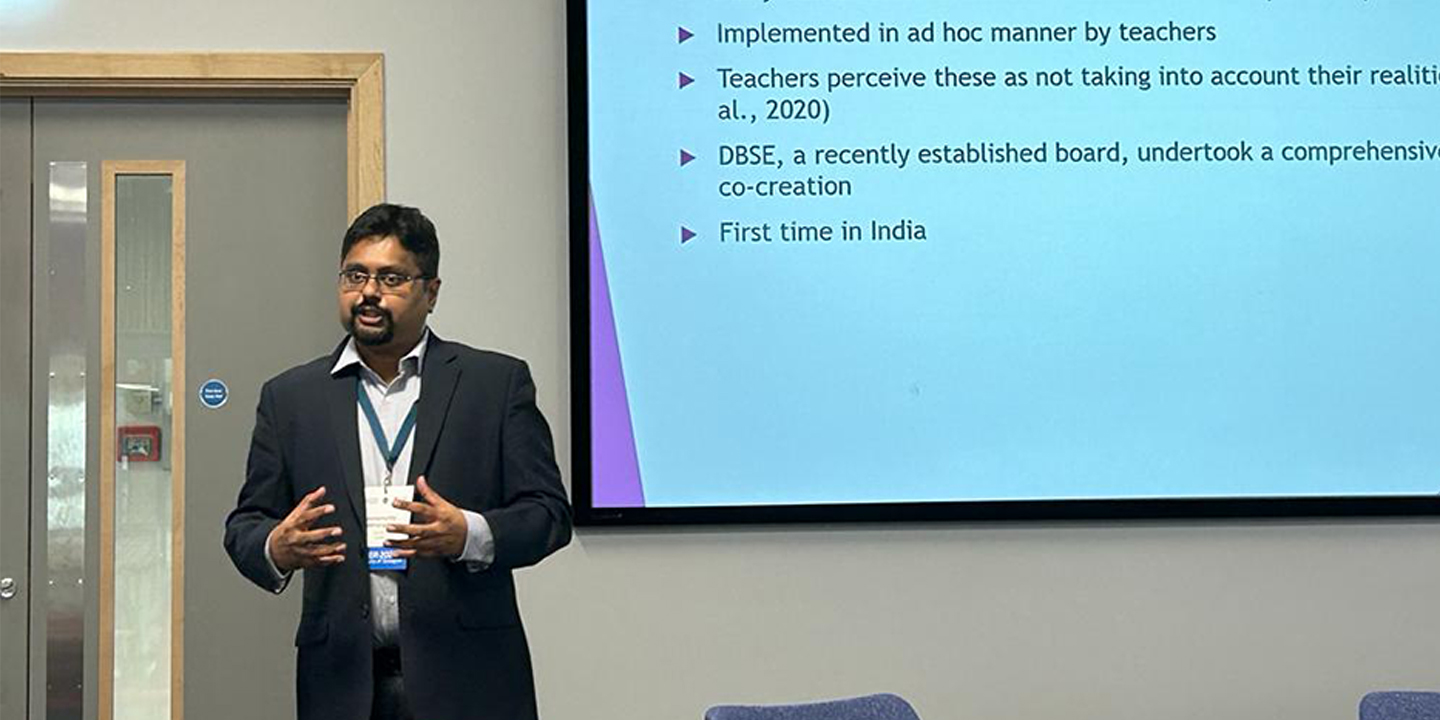
ACER India presents at the European Conference on Educational Research
ACER news 31 Aug 2023 4 minute readPresenting 3 research papers, Dr Priyanka Sharma, Ashtamurthy Killimangalam, and Anannya Chakraborty represented ACER India at the 2023 European Conference on Educational Research.
This year, the European Conference on Educational Research (ECER) was held at the University of Glasgow in the United Kingdom, from 22 August to 25 August. It saw a record-breaking participation of about 3,400 delegates from around the globe.
ACER India researchers presented on 3 broad areas: large-scale assessment, system reform and inclusive assessment.
Large-scale assessment
Dr Priyanka Sharma, Director, Research, ACER India, presented a framework to estimate and enhance the effectiveness of large-scale assessments in next generation learning systems.
Dr Sharma said, ‘Data and evidence from large-scale assessments don’t provide an instant solution to improve learning. They need to inform policy and implementation decisions at different levels, from national level to schools.’
Her presentation explored:
- a logic-based model on reasoning to estimate the effectiveness of large-scale assessments through evidence and/or counterevidence
- policy research and secondary analyses of large-scale assessments conducted in India
- an implementation framework comprising a series of steps to design system-specific strategies and monitor effectiveness.
System reform
Ashtamurthy Killimangalam, Research Fellow, ACER India, presented a case study on a new system-level approach to curriculum creation in India.
The approach was introduced at the Delhi Board of School of Education (DBSE) where different stakeholders including teachers, curriculum designers and researchers came together to co-create the curriculum.
Focus group discussions with various groups on their perceptions of co-creation of the curriculum suggested that:
- stakeholders had positive attitudes towards co-creation in general
- ownership tensions between stakeholders arose and needed to be resolved more effectively
- an important outcome of the process was the setting up of strong professional networks for teachers.
Inclusive education
Anannya Chakraborty, Senior Communications Officer, ACER India, presented a case study on teachers’ perceptions of formative assessment for students with disabilities.
She discussed teachers’ experiences of conducting disability-inclusive formative assessment in a private, inclusive, co-educational school in New Delhi. Her study describes the use of various kinds of accommodations and adaptations for disability inclusion, the challenges to implementing formative assessments, and factors that affect the implementation of disability-inclusive assessments.
Ms Chakraborty suggested that unless assessment is given its due importance in disability-inclusive education, achievement gaps between children with and without disabilities may widen due to the unavailability of learning data and its consequent use.
For interviews, collaboration, or information, please contact: commsindia@acer.org